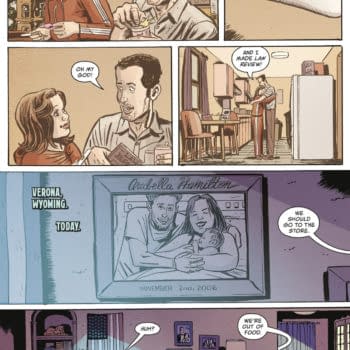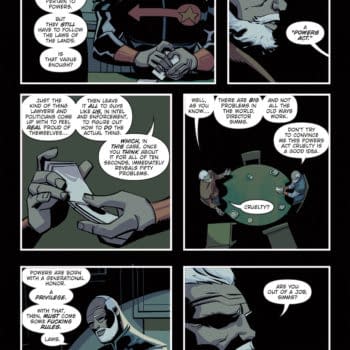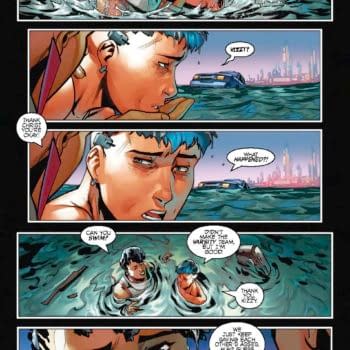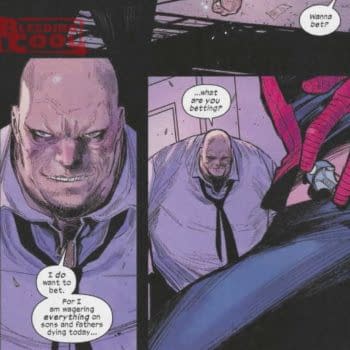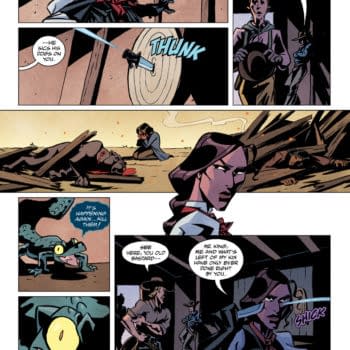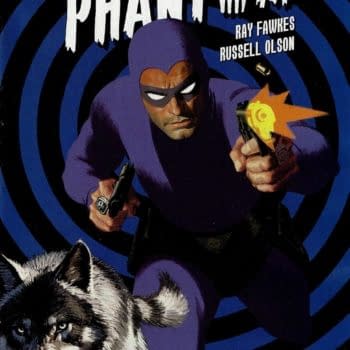Posted in: Comics, Comics History | Tagged: captain america, golden age, Golden Age of Comics, HRL, jack kirby, jerry siegel, joe shuster, joe simon, Mike Benton, Superheros, superman, the shield, wonder woman, wwii
The Powerful Popularity Of Superhero Comics During World War II
For the most part, I've met some amazing people in the comics world. Almost every person I've met — be them from podcasts, TV, Overstreet, and even here — has been pretty awesome. But once a week or so I'll get an angry email or tweet or whatever message via social media — from a guy — telling me to get out of comics. Mostly I find these comments really funny and they only get an eye roll from me, but once in a blue moon I'll get one that honestly makes me stop and go, "Wait. WAIT. You said what!?"
The other day while responding to a friend's Facebook post, a gentleman got angry at me for using the Yellow Kid and Captain America as historical examples of politics in comics, and I got the following gem of a reply:
"Hell, superheroes weren't even a big thing at the time. They had them for sure. But it wasn't the majority of books."
What got me was the notion that superhero comics weren't a big deal during World War II. A quick glance through comics.org indicates roughly 5,500 American comic books were published during the World War II era, and quick scan of that output gives us roughly 3,500 superhero comics during that time. And there was absolutely an agenda along with them.
Many of the comic book superheroes were created by Jewish men, and were seen very prominently punching or attacking various Nazis — including Hitler. As a Jew myself, I can assure you that is the quickest way to show everyone how you feel about WWII.
MLJ's The Shield was actually the first hero to go toe-to-toe with a Nazi in Pep Comics #1 in 1939, but as we all know, some plucky redheaded jerk took the spotlight from MLJ's heroes in Pep #22. In 1940, writer Jerry Seigel and artist Joe Shuster (who created some obscure character named Superman), came up with a two-page comic for 
Other Golden Age Superman comics were also — in all honesty — American propaganda. Superhero comics were fighting Hitler long before actual soldiers were. Captain America famously punched Hitler in the jaw in Timely's Captain America Comics #1, nine months before Pearl Harbor was bombed. As a result, Cap creators Jack Kirby and Joe Simon routinely received death threats from Hitler's followers. According to the Kirby Museum:
"On occasion the Timely office would get phone calls and letters from Nazi sympathizers threatening the creators of Captain America. Once, while Jack was in the Timely office, a call came from someone in the lobby. When Kirby answered, the caller threatened Jack with bodily harm if he showed his face. Kirby told the caller he would be right down, but by the time Jack reached street level, there was no one to be found."
The agenda for all of these comics was to convince other Americans that Hitler was, well, a piece of shit, and Nazi Germany was evil. Combined, Superman and Captain America alone were selling over 1 million copies per month during WWII. Other exceptionally patriotic heroes — such Wonder Woman, Captain Fearless, Miss Victory, Mr. America — were flying off the shelves. According to historian Mike Benton, 44% of soldiers in basic training were comic book readers. Care packages with superhero comics were common for soldiers to receive during the war.
I could go on about this very topic for hours. We could sit here and talk about how Superman was a marketing machine, or how comics didn't touch on the Holocaust (at the time). It's my personal favorite topic to discuss when it comes to comic books. While other books were just as important at the time (Wings being a favorite), there is no denying that superheroes were indeed a big deal during WWII and beyond.










